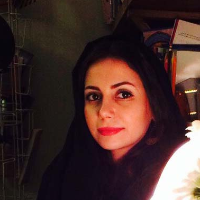Developing a Model for Measuring the Soundscape Quality in an Urban Context Based on Contextualism Using Matrices
One of the areas of interest in studies and environmental design is the soundscape. Since the sense of hearing, besides that of sight, becomes essential in understanding urban space, one research area of interest in environmental studies and design is the soundscape. The introduced methods and tools for measuring the soundscape are primarily quantitative, such as using tools or qualitative methods based on questionnaires; there are less comprehensive methods based on the contextual characteristics of the urban space. This research identifies and introduces a comprehensive framework for evaluating the soundscape in urban space based on the context of heard and perceived sound. It aims at criticizing most of the studies done on the soundscape, which primarily relied on one or two methods in their evaluation. The research emphasizes sound as a multi-dimensional phenomenon. A soundscape is an exchange between humans and the environment, and we should consider both aspects simultaneously in the evaluation process. This research examined the texts and methods used in the soundscape’s evaluation and proposed a quantitative-qualitative combined method based on the indicators of the context affecting the perception of the sound. The proposed model uses the four matrices of compatibility, desirability, capacity, and dependency. Therefore, the perception of sounds in the space occurs based on the type of activity in that space. The sound tolerance threshold and the pleasant soundscape are different based on the context where the person hears the sound.
-
Examining the Impact of Seasonal Changes on Embodied Perception Capabilities and Behavior: A Case Study of Darakeh, Tehran
Saeed Sharifkazemi, Farah Habib *, Maryam Ghalambor Dezfuly
Bagh-e Nazar, May 2025 -
Explaining factors affecting the formation of sociable spaces in educational environments using factor analysis method: (Case study of academic spaces)
Sayed Ali Sharifian, Hossein Moradi Nasab *, , Vadihe Mulla Salehi
Journal of Environmental Sciences and Technology,



